WORM prioritised products
The WORM partners have recently published the deliverable D1.1 Scoping exercise in which they revealed the five prioritised products selected for the project. They were selected after several meetings and discussions between WORM partners and associated partners, its sister project Bio4HUMAN, and WORM’s network specialised in waste management and the humanitarian sector. These items were selected based on their critical role in field hospitals and their potential for circularity.
Find here more details about the five selected products:
Personal Protective Equipment (PPE)
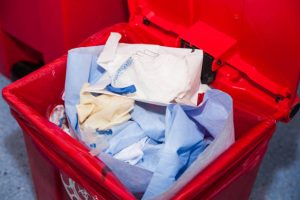
The PPE category in field hospitals includes gloves, facemasks, surgical gowns, and protective boots. These items were selected due to their essential role in protecting patients and healthcare workers from infectious agents. In addition, protective boots are also a concern for waste pickers. In a humanitarian context, especially in field hospitals, the demand for PPE is high due to the increasing risk of infection and the need to protect both healthcare workers and patients in often challenging and resource-limited environments.
Syringes and Needles
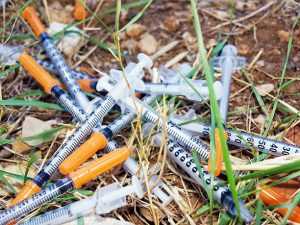
Syringes and needles, categorized as sharps, pose a high risk of injury, and are considered highly hazardous waste. The shift to single-use plastic syringes for economic, safety, and convenience reasons has led to significant environmental impacts. Improper disposal can lead to needlestick injuries, contamination, and increased landfill waste. However, syringes offer high potential for circularity, with ongoing research into recycling, reusing, and rethinking their design and disposal.
Sharps Containers
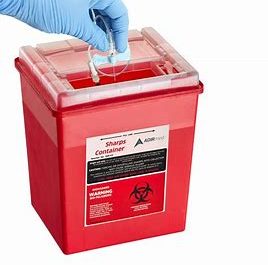
Sharps containers, typically made of plastic, contribute to plastic pollution when disposed of. The Britain National Health Service has identified clinical waste containers as one of the top 20 medical devices with the highest carbon footprint. A previous study has demonstrated that converting disposable plastic to reusable sharps containers reduces sharps waste stream greenhouse gas emissions by 84%. Circular solutions for sharps containers include developing bio-based plastics or compostable materials and implementing recycling programs.
Body Bags
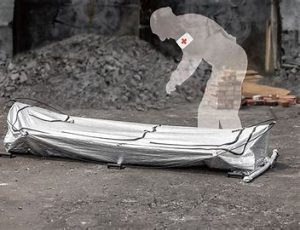
Traditional plastic body bags remain in the environment, contributing to plastic waste, releasing harmful chemicals during decomposition. Indeed, single-use plastics, including body bags, pose a major threat to the environment and public health, with a significant proportion ending up in landfills. Biodegradable body bags are available from medical supply companies, and researchers are exploring other sustainable and circular alternatives.
Temporary Water/Sludge Bladders
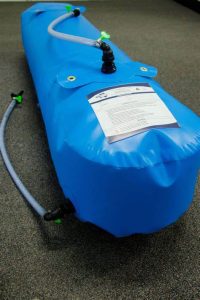
Wastewater treatment is crucial for reducing environmental and public health impacts, as many parasite transmission routes involve wastewater and sludge. The increase in wastewater treatment plants in developing countries has led to a rise in sludge production, necessitating proper treatment and management to mitigate harmful effects. Investigating bio-based or compostable materials for bladders or developing reusable or recyclable solutions is essential for addressing these issues in field hospitals, where sustainable water and waste management is crucial.
Want to learn more about these products? Read the deliverable D1.1 Scoping exercise and follow us on social media!